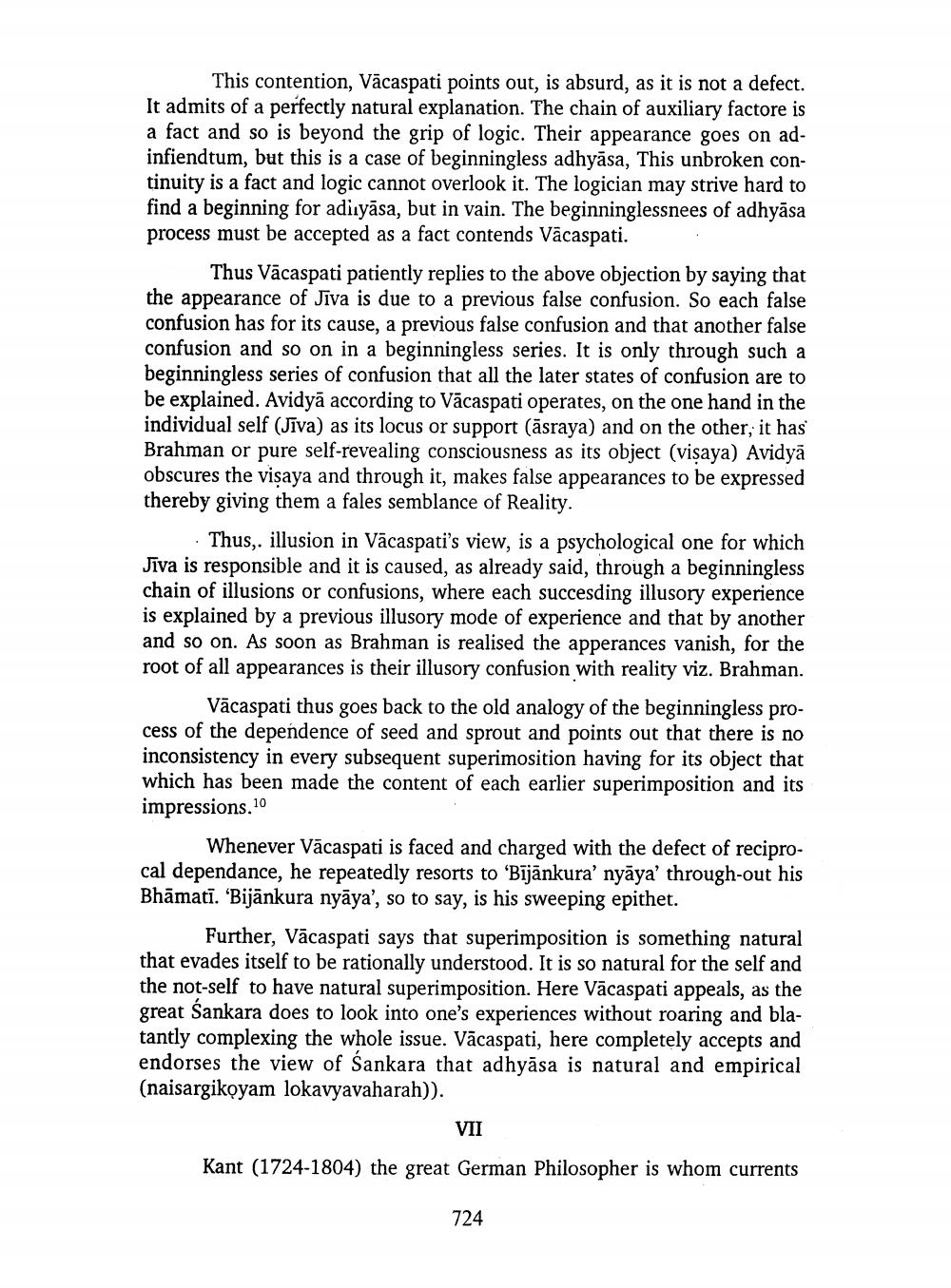________________
This contention, Vācaspati points out, is absurd, as it is not a defect. It admits of a perfectly natural explanation. The chain of auxiliary factore is a fact and so is beyond the grip of logic. Their appearance goes on adinfiendtum, but this is a case of beginningless adhyāsa, This unbroken continuity is a fact and logic cannot overlook it. The logician may strive hard to find a beginning for adiiyāsa, but in vain. The beginninglessnees of adhyāsa process must be accepted as a fact contends Vācaspati.
Thus Vācaspati patiently replies to the above objection by saying that the appearance of Jīva is due to a previous false confusion. So each false confusion has for its cause, a previous false confusion and that another false confusion and so on in a beginningless series. It is only through such a beginningless series of confusion that all the later states of confusion are to be explained. Avidyā according to Vācaspati operates, on the one hand in the individual self (Jīva) as its locus or support (āsraya) and on the other, it has Brahman or pure self-revealing consciousness as its object (visaya) Avidyā obscures the visaya and through it, makes false appearances to be expressed thereby giving them a fales semblance of Reality.
Thus, illusion in Vācaspati's view, is a psychological one for which Jīva is responsible and it is caused, as already said, through a beginningless chain of illusions or confusions, where each succesding illusory experience is explained by a previous illusory mode of experience and that by another and so on. As soon as Brahman is realised the apperances vanish, for the root of all appearances is their illusory confusion with reality viz. Brahman.
Vācaspati thus goes back to the old analogy of the beginningless process of the dependence of seed and sprout and points out that there is no inconsistency in every subsequent superimosition having for its object that which has been made the content of each earlier superimposition and its impressions.10
Whenever Vācaspati is faced and charged with the defect of reciprocal dependance, he repeatedly resorts to 'Bījānkura' nyāya' through-out his Bhāmati. 'Bijankura nyāya', so to say, is his sweeping epithet.
Further, Vācaspati says that superimposition is something natural that evades itself to be rationally understood. It is so natural for the self and the not-self to have natural superimposition. Here Vācaspati appeals, as the great Sankara does to look into one's experiences without roaring and blatantly complexing the whole issue. Vācaspati, here completely accepts and endorses the view of Sankara that adhyāsa is natural and empirical (naisargikoyam lokavyavaharah)).
VII
Kant (1724-1804) the great German Philosopher is whom currents
724




